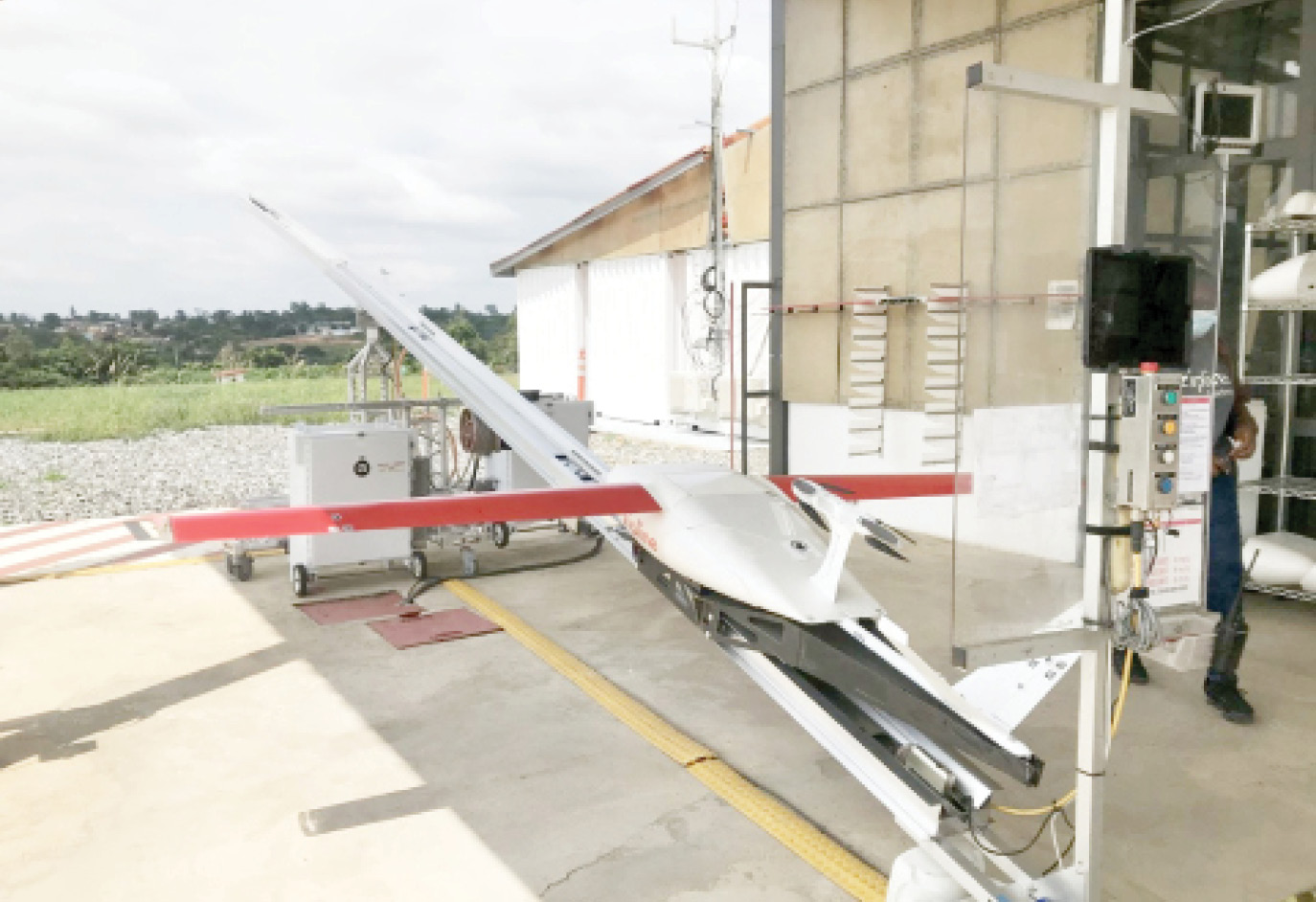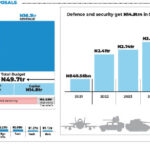Hundreds of health facilities in Ghana are receiving medical supplies, such as blood, drugs and vaccines within minutes, thanks to the use of drone technology. These life-saving drones are heading to Nigeria, with Kaduna and Cross River states serving as the country’s flagship to launch the use of drones for health services. At high speed and within minutes, drones will, in October begin the delivery of medical supply to hundreds of primary health care centres in the hard-to-reach areas of Kaduna State.
In January 2020, an eight-month-old pregnant mother of one, Zainab Ahmed, was bitten by snake in her Kinkinau home in Kaduna State. Two hours of frantic rush to various hospitals within the metropolis in search of anti-snake venom could not save her life and that of her unborn child. Two lives were eventually cut short due to the unavailability of anti-snake venom and other logistical impediments.
Pregnant women like Zainab and many Nigerians in hard-to-reach communities have lost their lives to similar challenges, especially with insecurity, poor road accessibility and poor human resources increasingly becoming major impediments to the health sector in Nigeria.
With drones, however, medical supplies, such as anti-snake venoms, vaccines, as well as blood and blood products, can be supplied faster to farther places within minutes. It is this technological innovation that Ghana, trailing behind Rwanda in Africa, has capitalised on and will soon come to Kaduna State in Nigeria.
To eliminate logistical challenges and improve overall lead time of deliveries of medical supplies to health facilities in the hinterlands, the Kaduna State Government, in February signed a Memorandum of Understanding (MoU) with a US-based medical product delivery company, Zipline.

Using drone technology, medical supplies will reach the farthest communities in record time and lives like that of Zainab and her baby can be saved.
This, the Kaduna State Commissioner for Health, Dr Amina Mohammed Baloni, said would also improve two out of the five key indicators for health by the World Health Organisation (WHO).
“Access to health services and maternal, infant and child health, which are directly dependent on constant availability of health commodities at service delivery point, will be improved,” Dr Baloni said.
According to the WHO, the high number of maternal deaths in some parts of the world reflects inequality in access to health services.
Nigeria already accounts for about 20 per cent of the global maternal death and is one of the countries with the highest maternal mortality rates in the world. In January 2021, the co-chairman of the Kaduna Maternal Accountability Mechanism, Mustapha Jumare, told Daily Trust on Sunday that factors responsible for maternal mortality in Kaduna State ranged from poor human resources to unavailability of drugs for pregnant women and insecurity.
But Dr Baloni explained that as soon as the drone delivery service comes into effect, residents in the state’s hinterlands plagued by insecurity and other challenges would benefit immensely from the delivery of life-saving commodities in emergency cases. She said drugs for postpartum haemorrhage, such as misoprostol and magnesium sulphate, as well as other emergency drugs, such as anti-snake venom, blood and blood products, would be easily accessible.
Inside Zipline in Omenako, Ghana
Ghana’s health service is currently using drones for the distribution of COVID-19 vaccines in an effort to manage the pandemic and ensure fast and wide distribution in remote areas. As the second country in Africa to embrace drone technology for health services, Ghana currently has the largest medical drone supply facility in the world.
Zipline, a California-based medical product delivery company, which designs, manufactures and operates delivery drones, established Ghana’s first facility in Omenako, which is over an hour-drive from the country’s capital, Accra.
Though the first, the Omenako facility is also the smallest and currently caters for the east and central regions of the country, distributing medical supplies to approximately 600 health facilities. Ghana has four distribution centres, which serve over 2,000 health facilities, with each facility made up of two distinct but complementary sections — Fulfillment and Flight Operations.
Draped in protective blue foot covers, journalists from Kaduna State were led on a tour of the facility. The Fulfillment operations are where drugs are stored and orders from health facilities are received, then packaged and delivered to flight operations for onward delivery. Packed with variety of freezers, including the ultra-cold temperature freezers that cater for Pfizer’s COVID-19 vaccine, which is stored on negative 80-degree celsius, pharmacists, public health professionals appeared busy, sorting, checking and packaging medical supplies.
“Before we serve any facility you have to undergo training with us at the Zipline Academy. So we come to that facility, take the coordinates of where you want the product delivered and train the various health personnel there on how to use the service. For each facility, there are specified people that can order so that not just anyone can make orders. The orders come in primarily from WhatsApp, call centres and SMS messages,” said Nathaniel Nurtey, a Fulfillment operator.

The drones
The drones and other components are housed at the flight operation’s section of the facility. Using the magic wand, a phone with a Zipline software, the Quick Response (QR) code of a delivery package is scanned to the drone, thereby directing it to its delivery point.
“It takes one hour for the package to be delivered to the farthest health facility within a radius of 80 km in Ghana. By road, it will take about three to four hours to deliver same,” Nurtey said.
Each medical package contains a maximum 1.6kg of medical supplies, which is bar-coded and contains the product name of the health facility it is going to and the product’s expiry date. The flight operator fits the red medical package box with a paper parachute strap into the pay load, which is the drone compartment before performing pre-flight checks. This is then carried by Zipline’s two-meter-long drones to designated coordinates.
Our correspondent observed that the drones were launched with a super capacitator-powered electric catapult, following which it flies itself to its destination while under the monitoring eyes of flight operators, using an interface.
As soon as the drone takes off, flight operators explain that the designated health facility is notified. Five minutes to drop off time, the health facility is again notified to expect the package.
But unlike airplanes, the drones do not land, it descends to 20-35 meters before a motor activates the latch of the drop mechanism and it opens. The package is then ejected under a paper parachute while the drone returns to the distribution centre.
But like every technology, Zipline operators agree that unforeseen circumstances and technical faults could occur while on transit. When this happens, the drone, which has a back-up battery and can fly on either of its two propellers may come down with the aid of a parachute in case of a major fault.
“When a storm or strong wind pushes it off course, the drone returns to base. The user interface will be notified when there is a mission failure and the drone is unable to deliver the package,” said the Zipline operator.
How Zipline will operate in Kaduna
When it takes off in Kaduna, three sites will come into effect to cater for all health facilities within the three senatorial districts of the state. Already, all the health facilities have been mapped out by Zipline with the first distribution centre to kick-start in Pambegua, Kubau Local Government Area of the state.
Zipline’s Fulfillment Operations lead in Ghana, Samuel Akuffo, said Kaduna’s first distribution centre would be launched in October and would serve over 200 health facilities. He said some of the major benefits Zipline hope to bring to Kaduna included just-in-time emergency deliveries at the doorsteps of health facilities.
“For very critical life-saving medication like anti-snake medication, anti-rabies and other life-threatening conditions like blood to save lives, we are hoping that Zipline would be a key partner by using drones to deliver in time,” Akuffo said.
Already, the company has recruited indigenes of the state, who have been trained to work in the facilities. Kwasu Kanchok, who is one of such people, will serve as the community leader for the KD1 in Pambegua. He told our correspondent that he and many others had undergone vigorous training at the Zipline Academy on how to bring health care closer to the people.
Speaking on the agreement, the Kaduna State Commissioner for Health, Dr Amina Mohammed-Baloni, explained that the contract with Zipline was for a four-year term, which would be renewable based on the delivery of contractual commitments from both parties and the willingness to continue with the service exclusively from the state government’s side.
Dr Balone said health commodities, including COVID-19 vaccines or routine immunisation vaccines that need thermolabile conditions for storage that are not available in a significant percentage of the health facilities at the hinterlands could be supplied within one hour of an order.
Speaking further, she said there would be a reduction of average logistics cost over time and improving overall lead time of deliveries. She stressed that difficult terrains by land logistics could be circumvented and deliveries made at night, which is not applicable with the land logistics system.
“There will be just-in-time delivery of scarce commodities by centralising the stock with Zipline, which allows for better inventory management, and by extension, better stock visibility and reduction of wastages due to expiry. Only unit quantities of commodities would be delivered to health facilities per need as opposed to larger stock quantities,” she said.
The commissioner further said this would reduce hoarding by bigger health facilities, and at the same time, reduce wastage from expiration and deterioration of products due to hoarding and inadequate storage capacity.

 Join Daily Trust WhatsApp Community For Quick Access To News and Happenings Around You.
Join Daily Trust WhatsApp Community For Quick Access To News and Happenings Around You.


